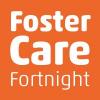Beginning the upward spiral: The benefit of sports and activities for children and young people in care
In this blog Craig, a development worker on our Fostering Achievement programme in Northern Ireland, highlights the physical and social benefits of sport and activities for children in foster care.
Studies have shown that childhood obesity has a direct correlation to levels of socioeconomic deprivation and that participation in physical activity has physical, mental and economics benefits.
It therefore can not be emphasised enough, the importance of encouraging and providing opportunities for sporting and recreational activities for children and young people in care who often have experienced a difficult start in life such as trauma, neglect and deprivation (43 per cent of looked after children come from the 20 per cent most deprived areas within Northern Ireland*).
Foster carers provide the 24/7 care for the majority of this group and have a crucial responsibility to provide an environment that promotes a healthy lifestyle including encouraging the social and emotional development of the children they care for.
The negative impact of insecurity and adversity early in life on the confidence, resilience and self-esteem of children and young people in care can result in lower goal-setting as they try to protect what is sometimes a fragile and battered self-identity.
A sense of achievement for children and young people in care can be gained by providing opportunities to participate in activities, away from the formal education setting in which they perform disproportionally poorly when compared to the general school-aged population*. Successful development of an interest or hobby can also spark a confidence to try new things and begin the upward spiral of positive-thinking that can lead to success in other areas of life.
All parents will appreciate that activities can be a costly affair and certain types of activities such as martial arts, horse riding and even team sports can require expensive. It is therefore essential that foster carers are supported financially so the child they care for can have access to the same opportunities as their peers.
In Northern Ireland The Fostering Network has had the privilege for the last 10 years of operating the Fostering Achievement scheme, funded through the Health and Social Care Board,which, among other things, supports foster carers to provide opportunities for the children and young people they care for to achieve an active and healthy life-style.
These activities, while helping to build confidence and new skills, can also support placement stability by giving foster carers the opportunity to encourage/praise success and build relationships with those they care for. If the child or young person has moved to a new area when they entered the foster placement, it can also lead to greater socialisation by giving opportunities to mix with and form new friendships. One of the biggest influences on developing positive self worth is peer-to-peer relationships and therefore promoting positive role-models and social groups in local clubs/activities is invaluable to develop great team-work, coordination and communication skills.
Every new positive experience a foster can bring to a child can help displace a previous negative one.
* National Statistics for Children in Care in Northern Ireland 2014/15 Statistical Bulletin





